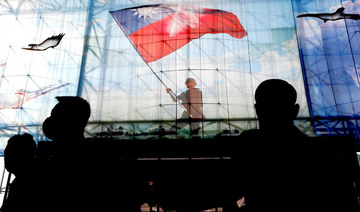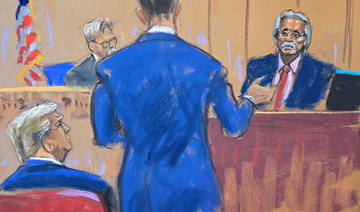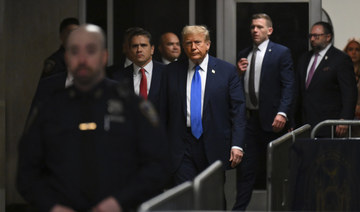MELBOURNE, Australia: The most senior Catholic to be convicted of child sex abuse will be sentenced to prison on Wednesday in an Australia landmark case that has polarized observers. Some described the prosecution as proof the church is no longer above the law, while others suspect Cardinal George Pell has been made a scapegoat for the church’s sins.
Pope Francis’ former finance minister, who had been described as the third-highest ranking Catholic in the Vatican, has spent two weeks in a Melbourne remand jail cell since a sentencing hearing in the Victoria state County Court on Feb. 27 in which his lawyers conceded the 77-year-old must spend time behind bars.
Pell had been convicted in December of orally raping a 13-year-old choirboy and indecently dealing with the boy and the boy’s 13-year-old friend in the late 1990s, months after Pell became archbishop of Melbourne and initiated a compensation scheme for victims of clergy sexual abuse. A court order had prohibited media from reporting on the verdict until two weeks ago, when prosecutors abandoned a second trial on charges that Pell had groped two boys in a public swimming pool in the 1970s.
Chief Judge Peter Kidd will sentence Pell on five convictions, each carrying a potential 10-year maximum sentence. The sentences for each conviction are likely to be served concurrently.
Pell’s sentence will also reflect court standards of two decades ago when his crimes were committed. In those days, judges placed less weight on the damage done to children by sexual abuse.
In an unusual move for an Australian court that acknowledges intense international interest in the case, the judge will allow his sentencing remarks to be broadcast on live television.
After centuries of impunity, cardinals from Australia to Chile and points in between are facing justice in both the Vatican and government courts for their own sexual misdeeds or for having shielded abusers under their watch.
Last week, France’s senior Catholic cleric, Cardinal Philippe Barbarin, was convicted of failing to report a known pedophile priest to police. Barbarin was given a six-month suspended sentence.
Pope Francis last month defrocked the onetime leader of the American church after an internal investigation determined Cardinal Theodore McCarrick sexually molested children and adult men. It was the first time a cardinal had been defrocked over the child abuse scandal.
Pell has denied any wrongdoing and will appeal his convictions on the Victoria Court of Appeal on June 5. His lawyers canceled an application to keep him free on bail before then.
The appeal grounds include that the “verdicts are unreasonable and cannot be supported” by the evidence of more than 20 witnesses who testified, including clerics, choristers and altar servers.
“It was not open to the jury to be satisfied beyond reasonable doubt on the word of the complainant alone,” the filings said.
That view has been expressed in some sections of the media.
“Pell was found guilty beyond reasonable doubt on the uncorroborated evidence of one witness, without forensic evidence, a pattern of behavior or a confession,” veteran crime reporter John Silvester wrote in Melbourne’s The Age newspaper.
“Pell has become a lightning rod on the worldwide storm of anger at a systemic cover-up of priestly abuses. But that doesn’t make him a child molester,” Silvester added.
An Australian academic who wrote an opinion piece describing Pell’s “accusers” as “wicked” last week apologized for the article, which was published in a Catholic monthly newspaper that was later pulled by the church.
“Pell is a tough man and he will, by the grace of God, survive the wickedness of his accusers and the silence of many who should defend him but won’t,” Tasmania University think-tank director David Daintree wrote in the Tasmania-based Catholic Standard newspaper.
In his written apology issued by the Hobart Archdiocese, Daintree said: “It was never my intention to cast doubt on survivors.”
Sky News Live, an Australian cable and satellite television station, protected advertisers’ reputations by removing all ads from prominent conservative commentator Andrew Bolt’s nightly program after he flagged he would be venting his own misgivings about the verdict.
“Pell could well be an innocent man who is being made to pay for the sins of his church and made to pay after an astonishing campaign of media vilification,” Bolt said.
The judge, prosecutor and defense lawyer repeatedly told both Pell’s juries that they must not make Pell a scapegoat for the church. The first trial ended in a deadlocked jury and the second jury delivered unanimous guilty verdicts.
Judge Kidd told the sentencing hearing last month: “The Catholic Church is not on trial ... I’m imposing sentence on Cardinal Pell for what he did.”
Pell is guilty as charged in the eyes of many who have been quick to distance themselves from the cardinal since the convictions were made public. Melbourne’s Richmond Football Club quickly dropped Pell as the Australian Rules Football team’s honorary ambassador. Pell was contracted to the club as a budding professional footballer in 1959 before he joined the priesthood.
The prestigious Catholic school where Pell was educated in his hometown of Ballarat, St. Patrick’s College, announced that a building named after him would be renamed and Pell would be removed from the school honor board.
“The jury’s verdict demonstrates that Cardinal Pell’s behaviors have not met the standards we expect of those we honor as role models for the young men we educate,” headmaster John Crowley explained.
But the Australian Catholic University said its Pell Center at its Ballarat campus would not be renamed until the appeal process was completed, angering academic staff.
The university’s president Greg Craven and former Prime Minister John Howard are among 10 prominent Australians whose character references were submitted to Kidd to take into consideration when deciding an appropriate sentence.
Sydney Archbishop Anthony Fisher told a congregation on the first Sunday after the convictions were made public that they should withhold judgment on Pell until the appeal.
“If we are too quick to judge, we can end up joining the demonizers or the apologists, those baying for blood or those in denial,” Fisher said.
Fisher, a former lawyer, holds the church post in Australia’s largest city that Pell held before he was elevated to the Vatican.
In the Vatican, Pell is facing a church investigation that could lead to his removal from the priesthood.
When Australian Archbishop Philip Wilson last year became the most senior Catholic cleric ever found guilty of covering up child sex abuse, he initially refused to resign pending an appeal.
But Wilson quit two months later after then-Prime Minister Malcolm Turnbull called on Pope Francis to fire him. Wilson’s conviction was eventually quashed on appeal in December, but he has not been reinstated to his former role.
Current Prime Minister Scott Morrison is willing to hold off acting on Pell until his appeal is settled. A petition with more than 100,000 signatures has called for Pell to be stripped of an Australian honor awarded in 2005 for his service to the church, education and social justice.
“I was appalled and shocked,” Morrison said of the convictions. “I think any Australian would be to read of those events, but it shows that no one is above the law in this country.”
Sex abuse convictions of Australia cardinal prove polarizing
Sex abuse convictions of Australia cardinal prove polarizing
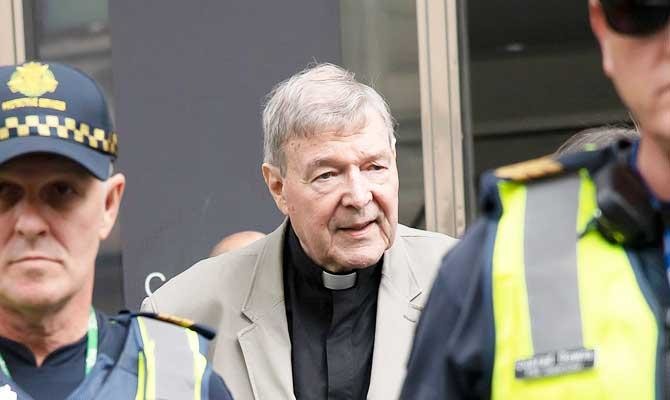
- Judge Kidd told the sentencing hearing last month: “The Catholic Church is not on trial ... I’m imposing sentence on Cardinal Pell for what he did”
Russia says it struck Ukrainian energy plants in response to Kyiv targeting its own energy sector
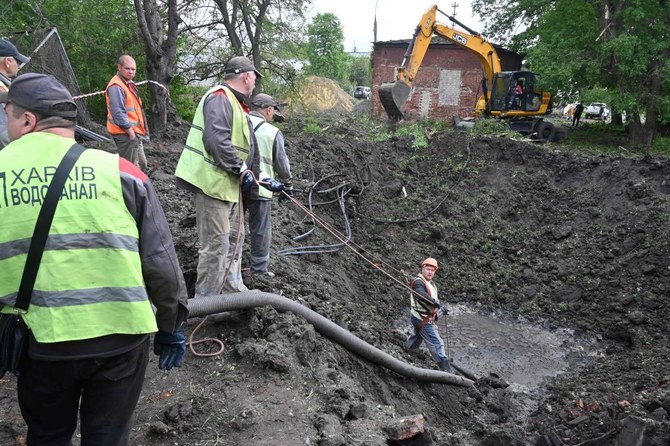
Ukraine has systematically targeted Russian oil refineries and other facilities in drone attacks in recent weeks
MOSCOW: The Russian Defense Ministry said on Saturday that its forces had carried out 35 strikes in the last week against Ukrainian energy facilities, defense factories, railway infrastructure, air defenses, and ammunition stocks.
It said in a statement that the strikes, which spanned April 20-27, were “in response to attempts by the Kyiv regime to damage Russian energy and industrial facilities.”
Ukraine has systematically targeted Russian oil refineries and other facilities in drone attacks in recent weeks, ignoring US requests not to do so.
Ukrainian officials said Russian missiles had pounded power facilities in central and western Ukraine on Saturday, increasing pressure on the ailing energy system as the country faces a shortage of air defenses despite a breakthrough in US military aid.
The Russian Defense Ministry said its campaign of strikes had been conducted using sea- and air-launched long-range precision weapons, including Kinzhal hypersonic missiles and drones.
It said it had also targeted and hit Ukrainian troop formations as well as what it described as foreign mercenaries.
Philippine capital’s financial center to become halal hub

- Makati Halal Hub to act as a platform for manufacturers, traders and consumers
- Philippines’ central business district is perceived as trendsetter for other regions
MANILA: Philippine businesses in Makati City are joining hands with the Department of Trade and Industry to make the country’s financial center a halal hub, the head of the Philippine Chamber of Commerce and Industry’s Makati branch said on Saturday.
Makati City in Metro Manila is often referred to as the Philippines’ central business district. It has the highest concentration of banks and multinational and local corporations in the country. Foreign embassies are also based there.
The predominantly Catholic Philippines — where Muslims constitute about 10 percent of the nearly 120 million population — plans to raise 230 billion pesos ($4 billion) in investments and generate around 120,000 jobs by expanding its domestic halal industry by 2028.
The DTI signed on Friday a memorandum of understanding with PCCI Makati to join the government’s efforts to tap into the global halal market, which is estimated to be worth more than $7 trillion.
“To be able to implement its policies more effectively — such as the promotion and development of the country’s halal industry — they (the government) have to collaborate or strike a partnership with the business community or the businessmen who will be responsible in making this a reality,” PCCI Makati President Toots Cortez told Arab News.
“We can be the catalyst. We will begin by creating awareness, especially among the MSMEs (micro, small and midsize enterprises) because, according to the records of DTI, 99.5 percent of business in the Philippines are composed of SMEs.”
The agreement on establishing the Makati Halal Hub will position the city as a “central point for innovation and business in the halal sector, spanning a variety of industries including food production, financial services, and more,” the DTI said in a statement, as it expects the initiative to “provide substantial opportunities for Filipino entrepreneurs and international investors alike, fostering a robust economic ecosystem.”
According to the vision, the hub will act as a platform facilitating connections between manufacturers, traders, buyers, distributors and consumers in the halal sector.
“If we can group together and promote halal, I think that will be the best approach … You don’t need a big budget,” Cortez said.
“There are many Muslim embassies in Makati City, many restaurants and major establishments … Many tourists come to Makati, so if we can convince the establishments in Makati to be accredited as halal, that’s a good beginning from our side as a catalyst.”
He believes that the industry’s promotion in the city will make an impact as Makati is widely perceived as a trendsetter for other Philippine regions.
“The others, they follow the lead,” Cortez said. “They follow the lead on what’s happening in Makati City.”
US food regulator gathering information on Indian spices after alleged contamination
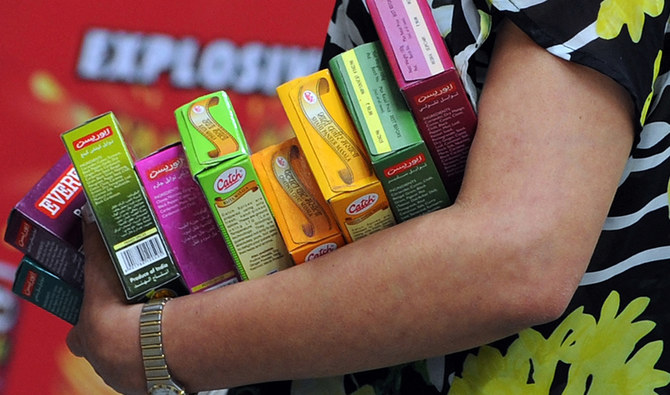
- MDH and Everest spices are among the most popular in India and are also sold in Europe, Asia and North America
- Hong Kong this month suspended sales of four MDH and Everest blends, while Singapore recalled Everest spice mix
HYDERABAD: The US Food and Drug Administration (FDA) is gathering information on products of Indian spice makers MDH and Everest after Hong Kong halted sales of some of their products for allegedly containing high levels of a cancer-causing pesticide.
“The FDA is aware of the reports and is gathering additional information about the situation,” an FDA spokesperson told Reuters on Friday.
Hong Kong this month suspended sales of three MDH spice blends and an Everest spice mix for fish curries. Singapore ordered a recall of the Everest spice mix as well, saying it contains high levels of ethylene oxide, which is unfit for human consumption and a cancer risk with long exposure.
Reuters is the first to report the US FDA’s review of alleged contamination of Indian spice products.
MDH and Everest did not immediately respond to Reuters requests for comment on this matter.
Everest has previously said its spices are safe for consumption. MDH has not responded to queries about its products so far.
MDH and Everest spices are among the most popular in India and are also sold in Europe, Asia and North America. India’s food regulator, the Food Safety and Standards Authority of India (FSSAI), is now checking the quality standards of the two companies, following the moves in Hong Kong and Singapore.
India’s Spices Board, the government’s regulator for spice exports, said on Wednesday it had sought data on MDH and Everest exports from authorities in Hong Kong and Singapore, and was working with the companies to find the “root cause” of the quality issues as inspections started at their plants.
In 2019, a few batches of MDH’s products were recalled in the US for salmonella contamination.
Taiwan reports Chinese military activity after Blinken leaves Beijing
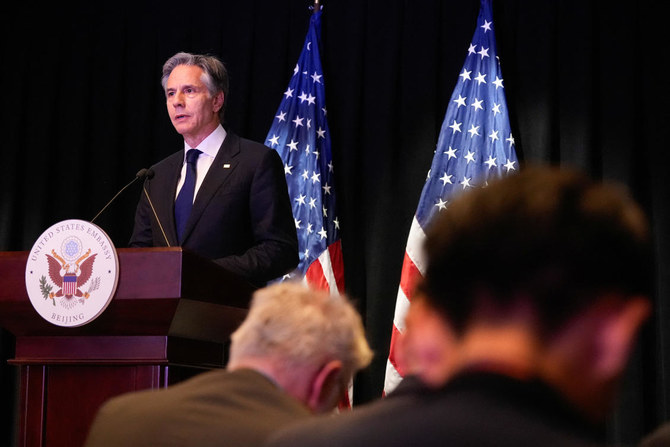
- US Secretary State Antony Blinken has stressed the ‘critical importance’ of maintaining peace and stability across Taiwan Strait while in China
TAIPEI: Taiwan reported renewed Chinese military activity near the island on Saturday with 12 aircraft crossing the sensitive median line of the Taiwan Strait, a day after US Secretary State Antony Blinken ended a visit to China.
The United States is Taiwan’s most important international supporter and arms supplier despite the absence of formal diplomatic ties. Blinken said he had stressed the “critical importance” of maintaining peace and stability across the strait while in China.
Democratically governed Taiwan has faced increased military pressure from China, which views the island as its own territory. Taiwan’s government rejects those claims.
Taiwan’s defense ministry said that from 9:30 a.m. (0130 GMT) on Saturday it had detected 22 Chinese military aircraft, including Su-30 fighters, of which 12 had crossed the median line to Taiwan’s north and center.
The line once served as an unofficial border between the two sides over which neither sides’ military crossed, but China’s air force now regularly sends aircraft over it. China says it does not recognize the line’s existence.
Taiwan’s defense ministry said the aircraft were involved in “joint combat readiness patrols” with Chinese warships, adding that Taiwanese aircraft and ships responded “appropriately.” It did not give details.
China’s defense ministry did not answer calls seeking comment outside of office hours on Saturday.
Taiwan’s armed forces are well-equipped and well-trained but dwarfed by those of China’s, especially the navy and air force, which respond almost daily to Chinese missions.
China considers Taiwan the most important issue in its relations with the United States, and Beijing has repeatedly demanded Washington end weapons sales to Taiwan.
Taiwan President-elect Lai Ching-te takes office on May 20 after winning January’s election. Beijing considers him a dangerous separatist and has rebuffed his repeated calls for talks.
Lai said on Thursday that China should have the confidence to talk to Taiwan’s legally elected government. Like outgoing President Tsai Ing-wen, Lai says only Taiwan’s people can decide their future.
Rooting for Trump to fail has made his stock shorters millions
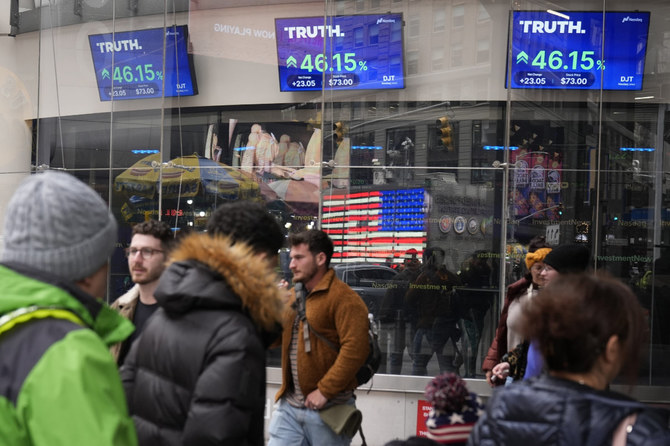
- Wall Street investors have collectively make millions by betting that the stock price of Trump's social media business — Truth Social — will keep dropping despite massive buying by Trump loyalists
NEW YORK: Rooting for Donald Trump to fail has rarely been this profitable.
Just ask a hardy band of mostly amateur Wall Street investors who have collectively made tens of millions of dollars over the past month by betting that the stock price of his social media business — Truth Social — will keep dropping despite massive buying by Trump loyalists and wild swings that often mirror the candidate’s latest polls, court trials and outbursts on Truth Social itself.
Several of these investors interviewed by The Associated Press say their bearish gambles using “put” options and other trading tools are driven less by their personal feelings about the former president (most don’t like him) than their faith in the woeful underlying financials of a company that made less money last year than the average Wendy’s hamburger franchise.
“This company makes no money. ... It makes no sense,” said Boise, Idaho, ad executive Elle Stange, who estimates she’s made $1,300 betting against Trump Media & Technology stock. “He’s not as great a businessman as he thinks. A lot of his businesses go belly up, quickly.”
Says Seattle IT security specialist Jeff Cheung, “This is guaranteed to go to zero.”

As of Friday’s close, a month since Trump Media’s initial public offering sent its stock to $66.22, it has dropped to $41.54. An AP analysis of data from research firms FactSet and S3 Partners shows that investors using puts and “short selling” have paper profits so far of at least $200 million, not including the costs of puts, which vary from trade to trade.
Still, amateur traders, mostly risking no more than a few thousand dollars each, say the stock is too volatile to declare victory yet. So they are cashing in a bit now, letting other bets ride and stealing a glance at the latest stock movements in the office cubicle, at the kitchen table or even on the toilet.
There have been plenty of scary moments, including last week when DJT, the ex-president’s initials and stock ticker, jumped nearly 40 percent in two days.
“I don’t know which direction the stock is going,” says Schenectady, N.Y., day trader Richard Persaud while checking his iPhone amid the surge. “It’s so unbelievably overvalued.”
Many who spoke to the AP say knowing their bets have helped slash the value of Trump’s 65 percent stake in half is an added political benefit. If some of their predictions are right, they may able to someday push it to zero, making it impossible for him to tap it to pay his hefty legal bills or finance his GOP presidential campaign.
They have a long way to go. Trump’s stake is still worth $4 billion.
Normally, investors betting a stock will fall, especially a gutsy breed of hedge fund traders called “short sellers,” will do plenty of homework. They’ll pore over financial statements, develop expertise in an industry, talk to competitors, and even turn to “forensic accountants” to find hidden weaknesses in the books.
No need in Trump Media’s case. It’s all there in the Sarasota, Florida-based company’s 100-page financial report: A firehose of losses, $58 million last year, on minuscule revenue of $4 million from advertising and other sources.
The losses are so big, as Trump Media’s auditor wrote in the report, they “raise substantial doubt about its ability to continue as a going concern.”
A short seller’s dream? Or is it a nightmare?
Amateur trader Manny Marotta has two computer screens at home, one for work, the other showing DJT stock’s movements where he can gauge how much he’s up or down.
It wasn’t looking so good earlier this week.
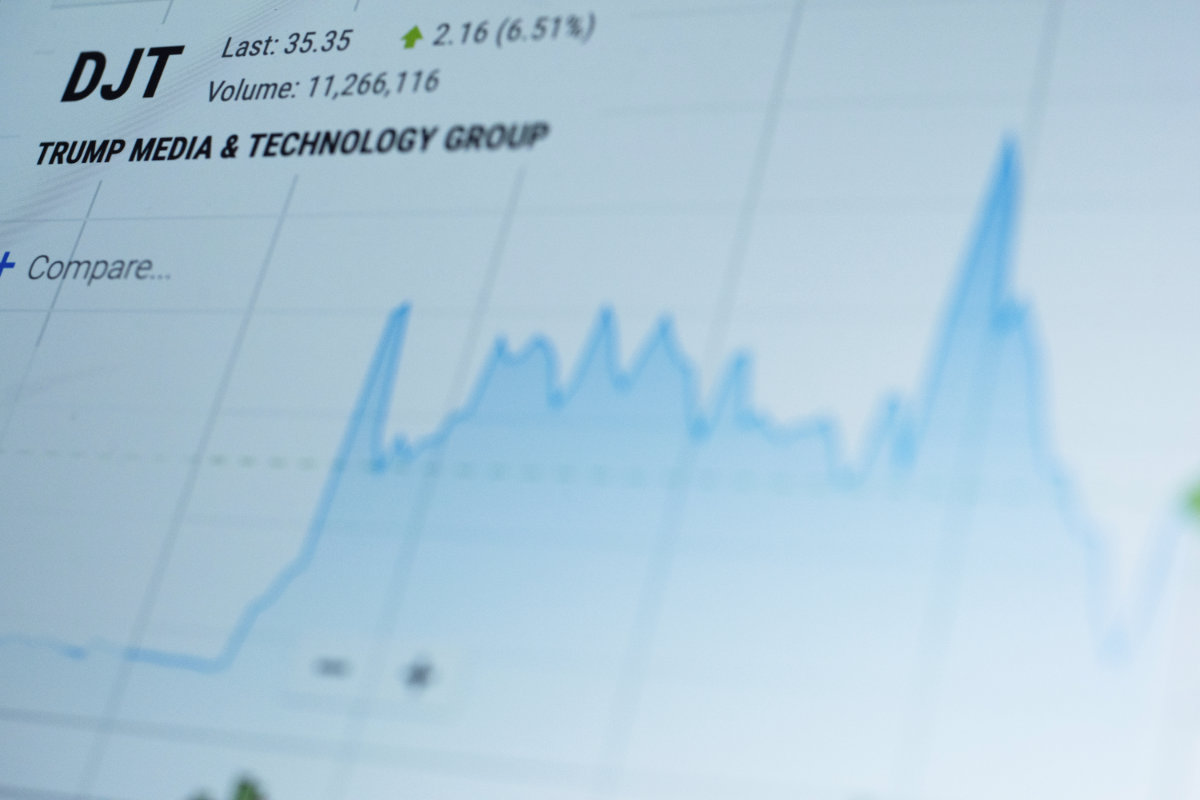
The legal writer from suburban Cleveland had been up about $4,000 on “put” options purchased over the past few weeks. But the screen that morning was showing investors, presumably rich ones, buying large volumes of DJT shares, pushing up the stock once again.
“My options are worth less with every passing minute,” says Marotta, adding about DJT: “It’s being manipulated. It’s insane.”
Waiting for the stock to drop is especially painful to “short sellers,” who pay a fee to borrow shares owned by others. The idea is to quickly sell them on a hunch they will be able to buy the same number of them later for much cheaper before having to return them to the lender. That allows short sellers to pocket the difference, minus the fee, which is usually nominal.
In DJT’s case, the fee is anything but nominal.
It was costing 565 percent a year at one point earlier this month, meaning short sellers had only two months before any possible profits would be eaten up in fees, even if the stock went to zero. It’s a rate so off the charts, that only three other stocks in recent memory have exceeded it, according to data from Boston University’s Karl Diether and Wharton’s Itamar Drechsler, who have studied short selling back two decades.
Add in massive buying by Trump supporters who see it as a way to support their candidate, and losses could multiply fast.
“It’s scary,” says Drechsler, who likens buyers of Trump’s stock to unwavering sports fans. “It is everything that you hope that the stock market is not.”
Trump Media spokeswoman Shannon Devine said the company is in a “strong financial position” with $200 million in cash and no debt, and said the AP was “selecting admitted Trump antagonists.”
Another danger to the stock is a “short squeeze.” If the price rises sharply, it could set off a rush by short sellers who fear they’ve bet wrongly to return their borrowed shares right away and limit their losses. And so they start buying shares to replace the ones they borrowed and sold, and that very buying tends to work against them, sending the price higher, which in turn scares other short sellers, who then also buy, setting off a vicious cycle of price hikes.
“If DJT starts rallying, you’re going to see the mother of all squeezes,” says S3 Partners short-selling expert Ihor Dusaniwsky, who spent three decades at Morgan Stanley helping investors borrow shares. “This is not for the faint of heart.”
And if that wasn’t enough, there is a final oddball feature of DJT stock that could trigger an explosion in prices, up or down.
“Lock up” agreements prohibit Trump and other DJT executives from selling their shares until September. That leaves the float, or the number of shares that can be traded each day by others, at a dangerously tiny 29 percent of total shares that will someday flood the market. That means a big purchase or sale on any day that would barely move a typical stock can send DJT flying or crashing.
The float is smaller than that of most other notoriously volatile stocks. At their smallest levels, AMC, GameStop and Shake Shack each had more than double the float.
Seattle trader Cheung sees DJT’s freak characteristics as a reason to bet against the stock, not shy away. When the lock-up period ends, he predicts, the ex-president will indeed sell his shares, spooking the market and sending the price down sharply. And even if he doesn’t, other insiders whose lock-ups expire will fear he will do so and will move fast to get a good price before it falls.
“The first one to sell out is going make to most, ” Cheung says. “Everyone is going to sell.”
Still, he doesn’t want to lose money in the interim, so Cheung is offsetting some of his “put” bets with the purchase of “calls.” The latter are also derivatives, but they do the opposite, paying off when the stock rises. Cheung hopes that whichever makes money, the puts or the calls, he will make enough with one to more than make up for the loss of the other.
If all of this seems too complicated, there is a far simpler way to make money betting against Trump.
Offshore, casino-style betting sites are taking wagers on the 2024 election, and some have even made President Joe Biden the favorite.




